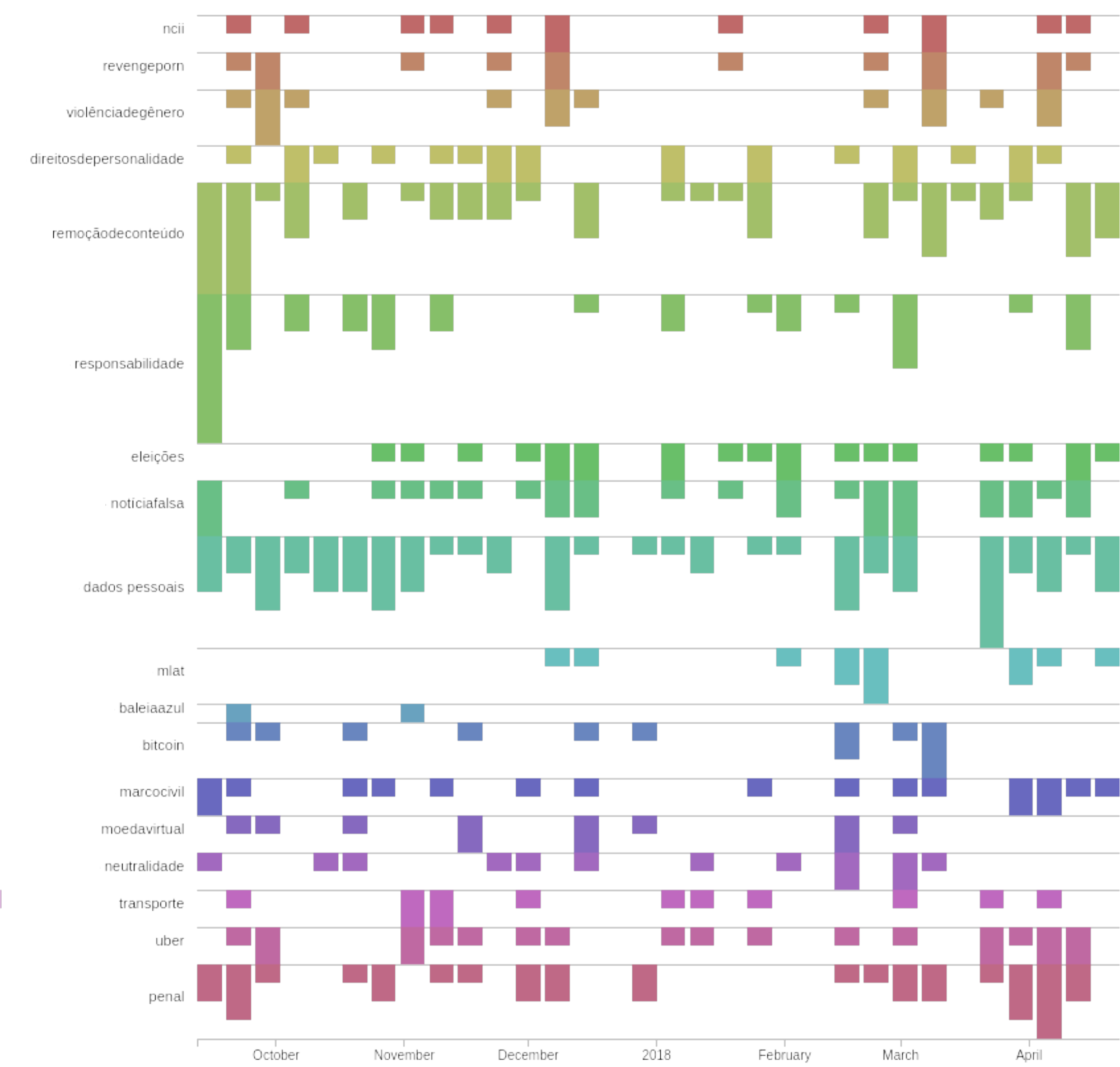
The Internet and the Three Branches: topics and tendencies of the last six months
The exponential and global growth of the use of the Internet brought with it a multiplication of judicial decisions and legislative proposals that address the complex issues related to the idea of regulating the web. As part of our monitoring of the transformations in the regulatory environment, six months ago we started a weekly report called SEMANÁRIO (available in Portuguese only), a bulletin on the latest events in the area of Internet policies in Brazil and in the world.
Every week, we began to make available an overview of the main events regarding the Legislative branch (bills which are proposed or passed by Congress), the Executive branch (decisions made by the government), the Judiciary branch (important decisions on Law and the Internet), and also a collection of important news from the international arena. Our weekly report also includes publications and relevant reports from the field of Internet policies, in addition to a calendar with researching opportunities and our participation in events.
From the material which resulted from our monitoring over the last 6 months and also based on the hashtags we used to identify the subjects of the texts, we mapped the most recurring subjects in our weekly report and the periods in which such subjects received more attention. We also raised some hypotheses that justify the emphasis on one subject over the other in the national and international agendas [1].
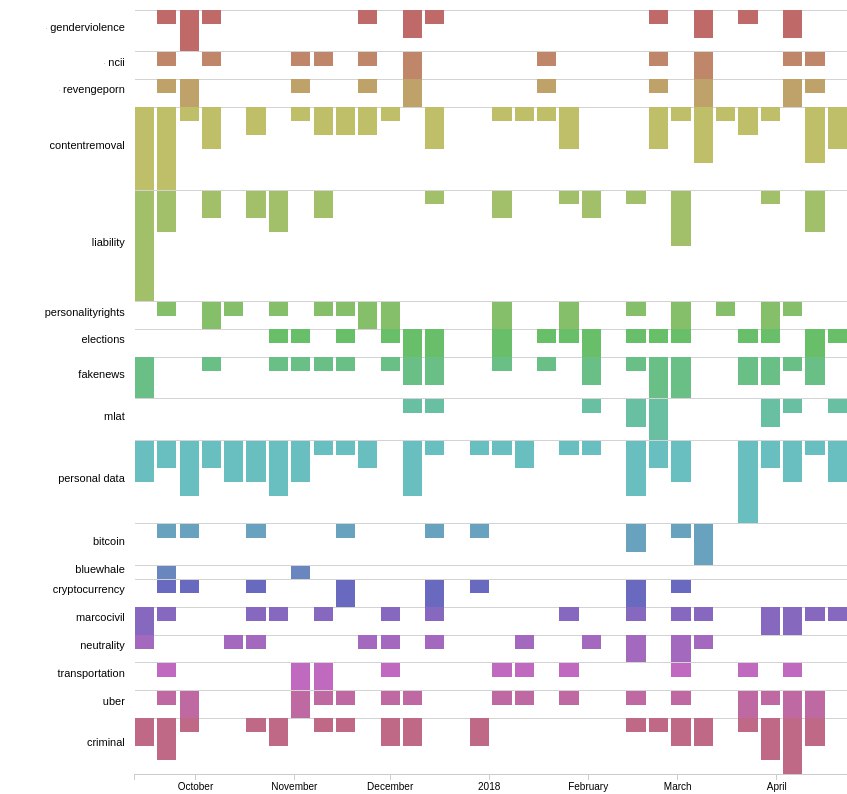
Inequalities and Identities
Discussions regarding Freedom of Expression often appeared in all sections of Semanário over the last few months, with emphasis on the great number of judicial decisions which were related to this topic. The incidence of the hashtags #contentremoval, #liability, and #personaltyrights (the original terms used in Portuguese were #remoçãodeconteúdo, #responsabilidade, and #direitosdepersonalidade, respectively) indicate that most of the cases deal with content removal requests for supposedly offensive content such as honor, publicity, and reputation, along with requests for liability, whether from the Internet platform or from the person responsible for the content, in addition to the payment of indemnity. The cases that were mentioned were also included in Dissenso.org‘s library of cases (available in Portuguese), a platform built for the promotion of freedom of expression in the digital environment which aims to encourage the dialogue between the academia, legal practitioners, and the society through the diffusion of information.
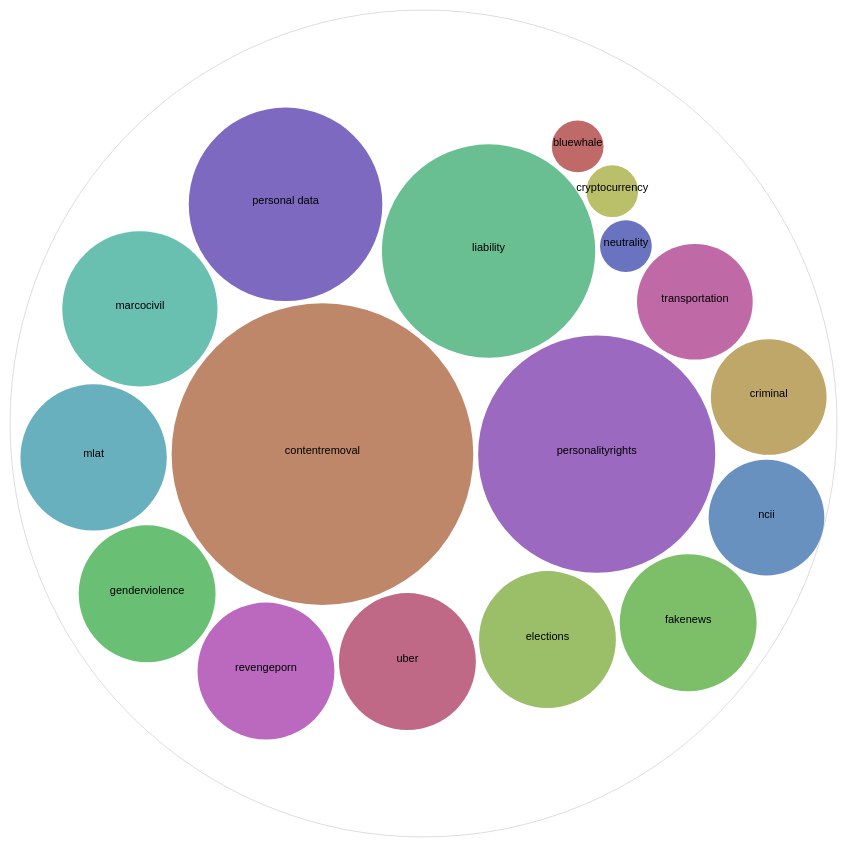
Privacy and Surveillance
Privacy and Surveillance were recurring topics in the international agenda, mainly on the report of events related to the new EU General Data Protection Regulation (GDPR), and to the leaking episodes and unconsented use of personal data by companies — like in the recent case involving the consulting company Cambridge Analytica.
In the national agenda, privacy was discussed in the legislative section, mainly associated with the hashtags #personaldata or #dataccess (#dadospessoais and #acessoadados, respectively), related to the monitoring of bills that intend to establish a general law for data regulation in Brazil. In the Judiciary, the topic gained prominence in February 2018 due to the intensification of the debates about access to data stored abroad during that month, when the ADC 51 began to be analyzed by the STF. The hashtag #communications (#comunicações) was mostly present in October and December 2017, linked to the debates about the access to communication data and to the general repercussion of the case discussing the access to data stored in cellphones without a court order.
Information and Politics
The hashtags related to the areas of Information and Politics are centered around the topics of elections and fake news, and they appeared in all sections of the national agenda, especially from December 2017, when debates about the electoral laws that will guide this year’s dispute began to get heated. At the time, the Superior Electoral Court (TSE) held a seminar, in partnership with the Ministry of Science, Technology, Innovations, and Communications (MCTIC), and the Brazilian Internet Steering Committee (CGI.br), with the goal of discussing the new electoral rules and the influence of the Internet on the 2018 elections, focusing on the risk of the circulation of fake news and the use of bots. Also in December 2017, the then President of the TSE, Justice Gilmar Mendes, instituted the Consulting Council for Internet and Elections, through the Portaria-TSE no 949/2017. In the Legislative, we identified more than 15 bills which address the problem of fake news, proposing from the criminalization of its production and dissemination to the alteration of the Brazilian Internet Civil Rights Framework and the Electoral Code. Before the multiplicity of projects and the relevance of this topic, the Council for Social Communications of the National Congress (CSS) has been gathering subsides to back recommendations and an official statement about the propositions going through Congress, a move we have also been monitoring.
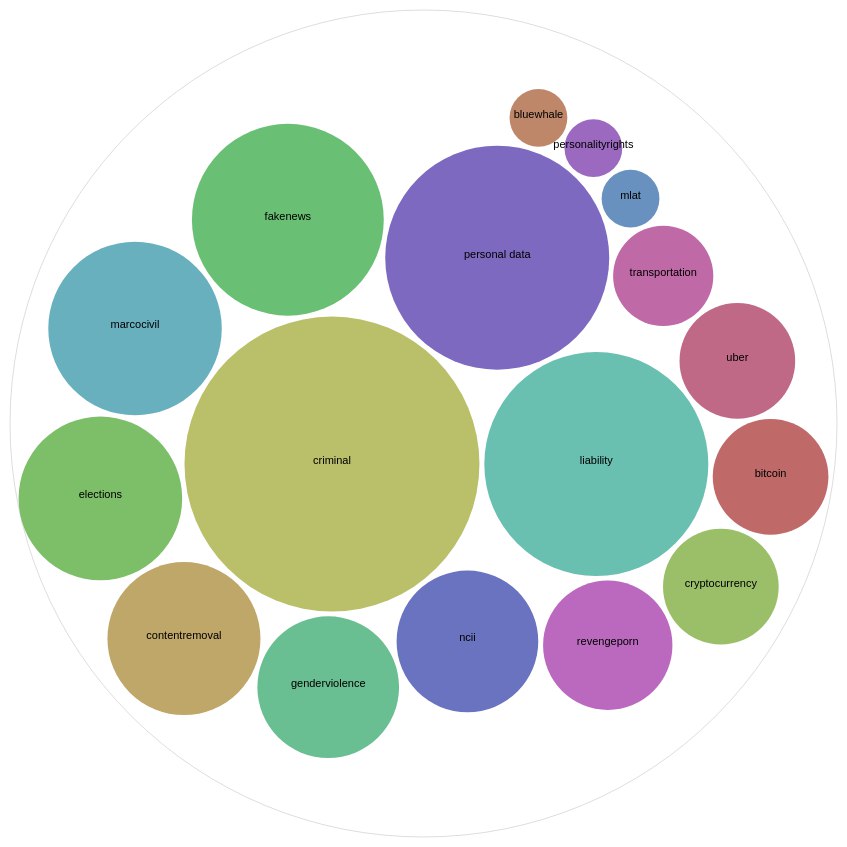
Tendencies and debates on the networks and regulatory strategies
Beyond the topics pertaining to our current four research areas, we also identified that issues related to sharing economies had a significant presence in our weekly report as well, especially when the regulamentation of transportation apps was being discussed in the legislative, with the recent passage of Law 13.640/2018. The frequent use of hashtags #uber and #transportation (#transporte) associated to this line indicates that the main issues that appear under this topic are exactly related to the regulation and operation of transportation apps in Brazil and in other parts of the world. Cryptocurrencies, like Bitcoin, were discussed more often in the international agenda, but the topic has become more relevant in the national legislative branch as well, particularly due to a Special Commission installed in the Chamber of Deputies and in the Executive, along with the regulatory efforts made by the Central Bank and the Security and Exchange Commission.
In addition to the identification of themes, our research has enabled us to notice some regulatory strategies and tendencies primarily adopted by national stakeholders. In the Legislative, historically, congressmen resort to the criminal law in order to address the challenges brought by the Internet, especially when the topics are highlighted by the national press. Our hashtag mapping confirms this tendency. The hashtag #criminal (#penal) was considerably present during the last six months, mostly in the legislative section, and linked to bills that address this subject of great social interest, as was the case with the “blue whale” phenomenon, by the end of 2017, and more recently the dissemination of fake news.
On the other hand, our research indicates that, in the Judiciary Branch, topics which are related to Internet policies are more discussed in the civil sphere [2]. In many cases, this happens because of the enforcement of the Brazilian Internet Civil Rights Framework, but decisions of liability and indemnity that do not reference this law are still common. In general, we noticed that State Courts have the tendency to prioritize personality rights, like the defense of honor, in favor of freedom of expression, in some cases even making Internet platforms liable for the content generated by users.
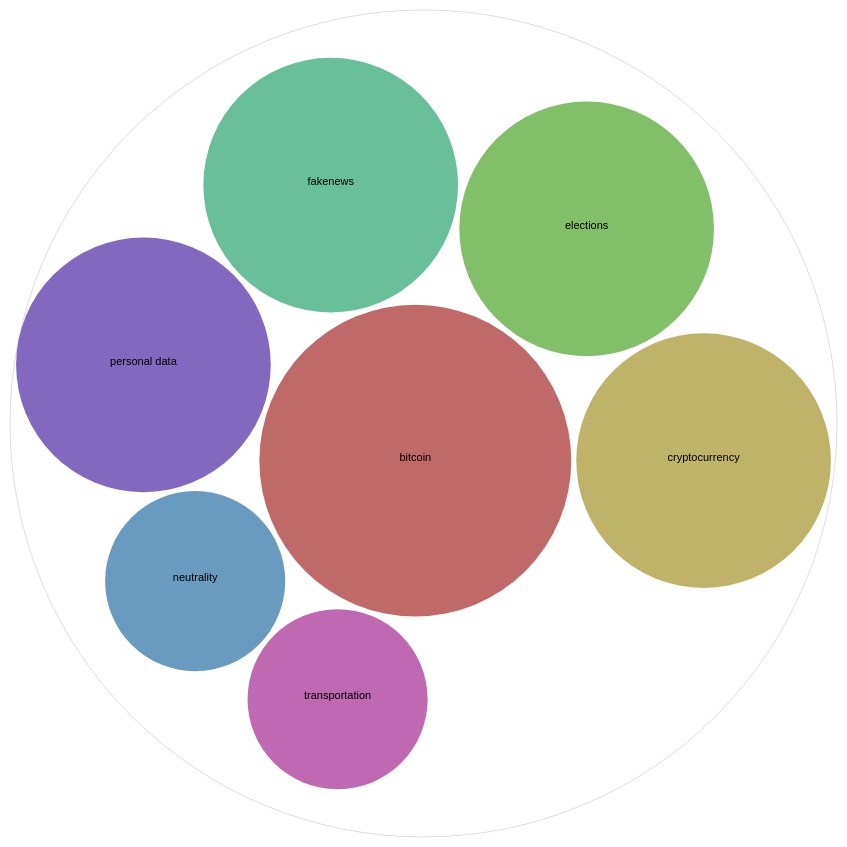
How is the mapping made?
Semanário is made by InternetLab’s Policy Watch team, who developed a constant monitoring methodology of several sources. The Legislative and Executive Branch sections are mainly based on information available on the official webpages of the Brazilian Chamber of Deputies, Federal Senate, ministeries, and other state bodies and government agencies. The Judiciary section is made through the research of recent decisions on the courts’ press rooms, in addition to articles published in news outlets specialized in legal matters. With that, we do not intend to cover all decisions, neither to encompass all case law repositories in the courts, but to provide a sample of how courts in different parts of the country have been facing interesting topics related to the Internet.
The International Policy Watch area gathers information on relevant agendas that are under public discussion as well as topics related to InternetLab’s research areas. Whenever it is possible, we try to provide the links for the official sources and documents of the published information. Our attention is drawn to decisions from foreign courts (especially the higher ones), official government statements, bills passing through congresses, as well as reports published by international organizations and entities from the technology area.
Next steps
Before the key role that new technologies and, above all, the Internet have nowadays, we believe that it is more and more relevant to understand the constantly evolving regulatory scenario in which they are inserted. We hope that Semanário continues to be a source of information on the current discussions being held in this field and for it to inspire the reflection on how authorities, in Brazil and in the world, have been dealing with the complex issues tied to these technologies. Sign up to receive Semanário (in Portuguese) via e-mail or access InternetLab’s website to find every published edition of the last six months.
[1] It is necessary to consider the recess period of the legislative and judiciary branches in Brazil, during December 2017 and January 2018, which influenced the volume of analyzed decisions, as well as the monitoring of bills.
[2] The predominance of civil cases in favor of criminal ones refers only to the decisions published in the “Judiciary” section of Semanário. Our research in the courts’ case law repositories is not exhaustive, which hinders us from developing conclusive diagnoses in this sense. As it is exposed, the set of decisions commented here is exemplifying and does not have the intention of covering all judicial decisions made in the country, but to gather samples of relevant case law understandings related to Internet policies. Furthermore, it is possible that the majority of civil cases is not only due to the methodology used but also from the fact that many criminal cases happen under secrecy of justice — especially those that involve the non-consensual dissemination of intimate images and breaches of secrecy –, the reason why they are not part of our research.
By Beatriz Kira, coordinator of the Policy Watch area, and Heloisa Massaro, research intern. With the collaboration of researchers Clarice Tambelli and Lucas Lago.
Translation: Ana Luiza Araujo